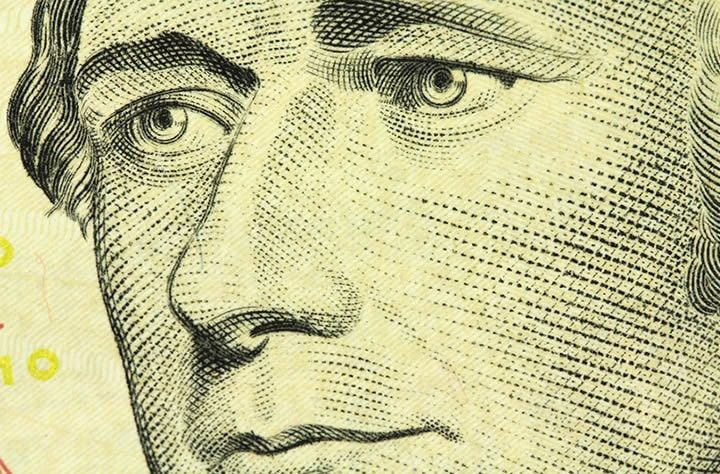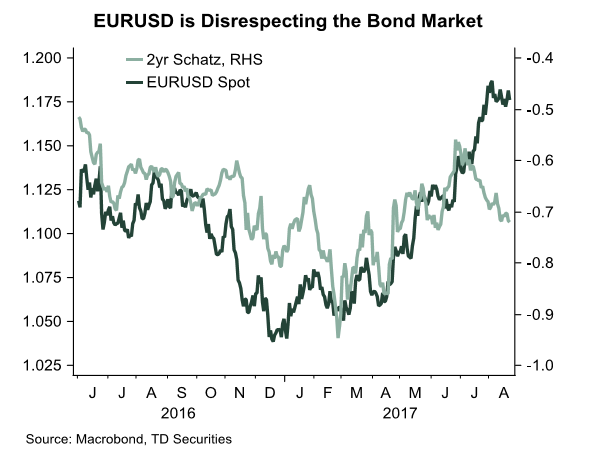Euro / Dollar at Risk of Short-Term Decline on Jackson Hole Nerves

The Euro to Dollar exchange rate (EUR/USD) is at risk of falling over the short-term, as European Central Bank (ECB) president Mario Draghi appears unlikely to say anything about reducing monetary stimulus in Jackson Hole this week.
This is at least the view of analysts at a noted Canadian investment bank.
"Market participants expect this (Jackson Hole) to be the platform where the ECB President will provide an explicit nod to taper this year. We disagree and see little policy guidance from Draghi overall," says Richard Kelly, an analyst with TD Securities.
The subsequent disappointment should extend the sell-off in the Euro:
"A dovish trigger from Draghi might cascade a ‘textbook’ correction towards the 61.8% Fibo retracement near 1.13," said Kelly, who nevertheless acknowledges this as an "ambitious" target from the current market level in the 1.1780s.
"A challenged USD backdrop may make this rather ambitious, leaving the 1.15 level as the anchor for now. A break and close below the 1.1680/90 area to signal accelerated declines," added Kelly.
Although Draghi has said he will talk about some aspects of ECB policy in the autumn, namely those relating to the size of the Bank's balance sheet, TD do not think this will extend to a discussion of 'tapering' or a gradual reduction in the current 60bn a month the ECB spend on buying bonds from financial organizations so as to encourage greater and more widespread lending.
The ECB stated in the minutes from their most recent meeting that they did not want to mislead the market, saying things which might be open to "overinterpretation" in regard to tapering, indicating a cautious stance is likely from Draghi in the short-term.
The ECB's concern about the rising Euro and the negative impact that might have on the region's export competitiveness is a further disincentive to Draghi discussing early tapering.
These factors have led to the pair having an "asymmetric risk profile" according to Kelly, which is exacerbated by the fact the uptrend, which began following Macron's presidential victory, is overly 'stretched' from a positioning point of view - i.e. there are now too many buyers and the uptrend is at risk of weakening.
The difference between German and US Bond yields are a common method for determining the 'fair value' of the exchange rate between the Euro and the Dollar.
The correlation between the two means they usually move in tandem and when they part ways it is not usually for very long.

As further evidence for there being a vulnerability in the EUR/USD pair, Kelly points out how the exchange rate and the yield differential have diverged recently indicating the pair may be overvalued.
"Further, EURUSD and EUR/crosses have, in large part, shown significant deference to bund yields. Indeed, this was one reason for our short-term negative EURJPY bias," says Kelly, adding:
"In recent weeks, however, EUR/USD has uniquely disrespected the German bond market. For instance, 2yr Schatz has rallied approximately 10-12bps since the July 20th ECB meeting towards –72bps while EURUSD continued its ascent."
TD are clear, however, that their call for EUR/USD softness is a short-term call, and in the longer term they, "remain long term EUR bulls over converging policy normalization trends which compels a global reallocation of capital flows."




